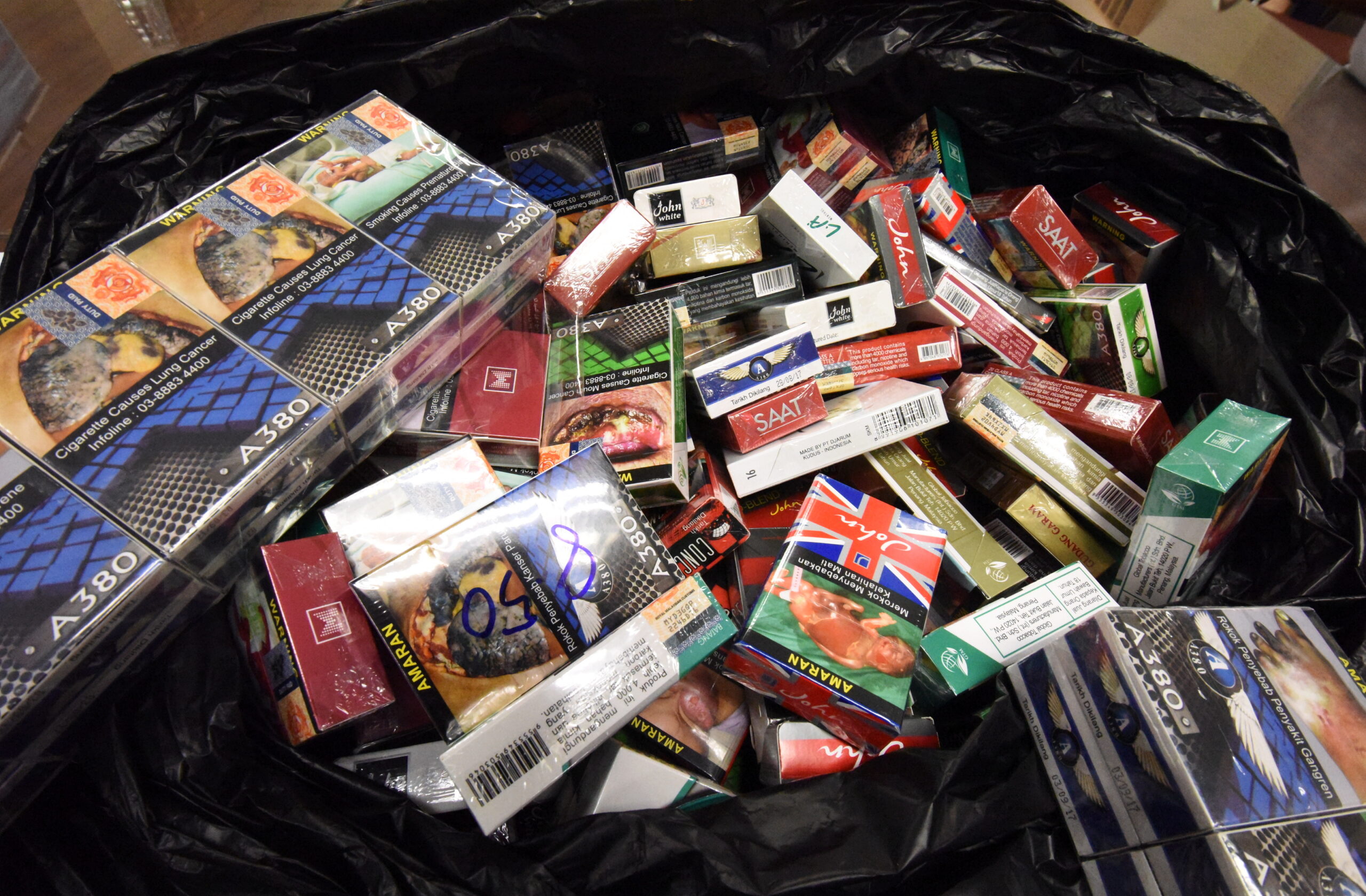EVEN before the re-opening of its borders on April 1, Malaysia saw a surge in illicit cigarette incidence, hitting 58.4% in March 2022 against 54.6% recorded for December 2021, according to a study entitled ‘Illicit Cigarettes Study (ICS) in Malaysia (March 2022)‘ by Nielsen.
Illegal cigarette trafficking worldwide is a multibillion-dollar crime phenomenon with some cigarette smugglers having ties to terrorist groups.
According to France’s Centre for the Analysis of Terrorism, 15 of the world’s major terrorist organisations regularly use illegal cigarettes to finance their activities.
The main reason criminal organisations are involved in cigarette smuggling is its lucrative revenue stream. In addition, it is considered a relatively low-risk crime with penalties that are lower compared with other more serious crimes such as drug and human smuggling.
It is a fact that trafficking in illicit tobacco is not a victimless crime. When cigarettes and tobacco products are smuggled into a jurisdiction, it deprives our Government of billions in tax revenues while funding illicit activity.
Lost tax revenue means that the Government cannot pay for health and education programmes, government services or the law enforcement efforts required to combat it and the criminals behind the smuggling schemes.
Endangering health
And often, the products do not meet the health regulations for tobacco products and violate numerous other tobacco laws and regulations.
It is found that illicit tobacco products often contain manipulated or higher nicotine contents – chemical levels that are higher than what is permissible under the health regulations – to make them more addictive to users, especially the youth generally.
The Government needs to do more to combat illicit trade.
Clamping down does not necessarily require additional and new regulations to be imposed on the tobacco industry when the country is facing a severe smuggling crisis where over 58% of all cigarettes consumed are illegal.
When regulation is extreme and prohibitionist, it will cause the opposite effect – illicit trade based on cheap, unregulated, non-quality controlled tobacco products – undermining efforts to reduce the number of smokers and prevent minors from taking up smoking.
In fact, the increase in the illicit trade of tobacco products evolved as a reaction to over-regulation and over-taxation.
The excise shock in 2015 that saw an overnight increase of 42.8% for tobacco has played to smugglers’ benefit. According to an Oxford Economics report, legal cigarette sales had fallen by 32% after the Government raised the excise duty while smoking increased by 5% nationwide.
Effective enforcement
The illicit cigarette trade is a complex issue, and it requires collaboration, dialogue and a common sense approach by all parties concerned.
The Government alone is not able to address this complex problem on its own. It requires all parties – be it public or private sector – to come together and implement the right regulations or innovative solutions to combat this illicit trade.
Even though the Malaysian Government had implemented a series of anti-illicit cigarette measures during Budget 2021, criminals continue to improve their concealment methods, including using smaller and private jetties or renting out private premises to store their illicit products just to serve the ever-growing demand for cheap tobacco products.
Yes, effective regulation is a key to achieving real progress against illicit trade, but fundamentally the Government must ensure that any regulations introduced must be accompanied by effective enforcement.
The Government should focus its efforts on addressing the illicit trade in the country. So long as the regulation is not properly enforced, cheap illicit tobacco will continue to be widely available.
The failure to clamp down on illicit tobacco would negate any efforts to reduce tobacco consumption, including new policies such as the Generation End Game (GEG). – June 2, 2022
LK Foo is a reader of Focus Malaysia.
The views expressed are solely of the author and do not necessarily reflect those of Focus Malaysia.









